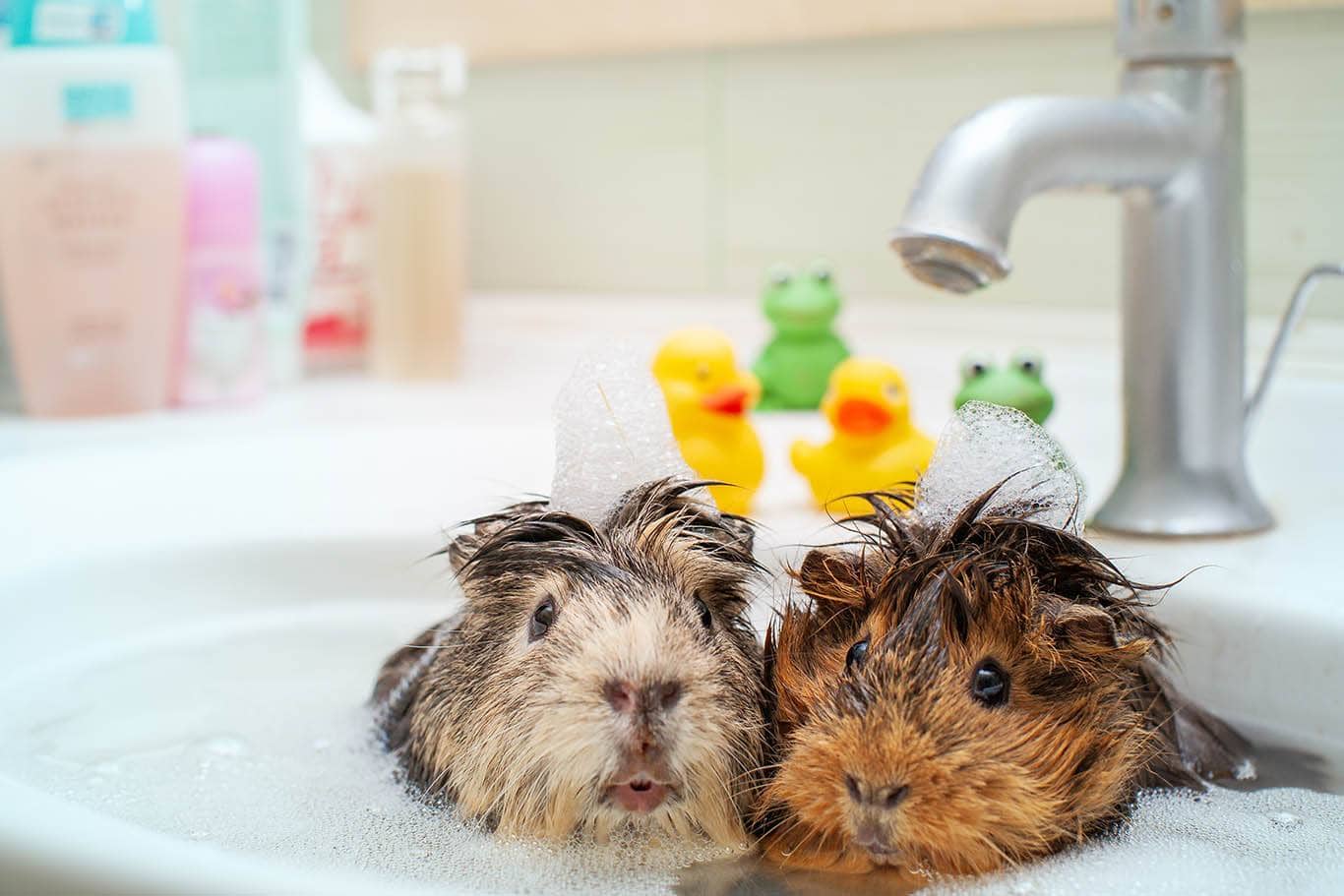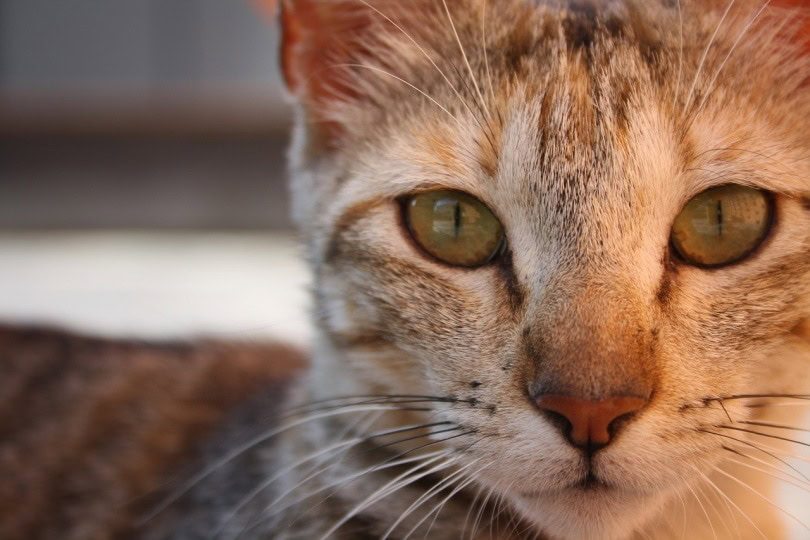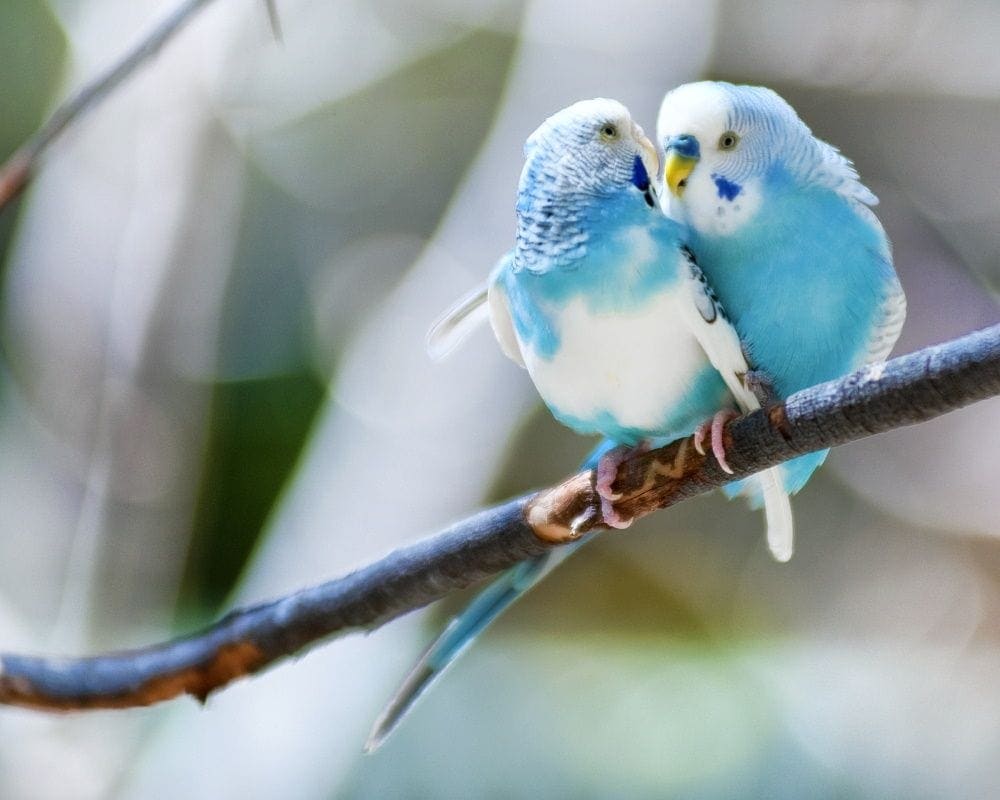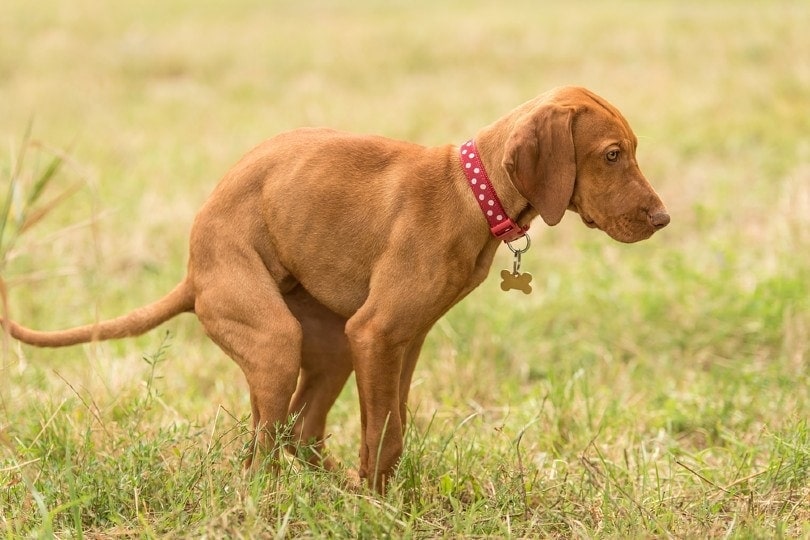VET APPROVED

The information is current and up-to-date in accordance with the latest veterinarian research.
Learn more »Guinea pigs are great little pets for people who have experience in caring for them, and they are generally not very smelly. The good news is that healthy guinea pigs tend to take care of themselves in terms of self-grooming. The bad news is that their cage will still need cleaning, and that’s all up to you. Your pet could also be sick or eating the wrong kind of food, leading to an unpleasant smell.
Here, we discuss the best ways to keep your guinea pig and their environment clean and fresh-smelling. These include cleaning their habitat and recognizing the signs that your pet might not be feeling well.

The 8 Ideas & Tips on How to Get Rid of Guinea Pig Smell
1. The Cage
Start With the Bedding
The bedding for a guinea pig should be absorbent, non-toxic, soft on the feet, and dust free, and it should help neutralize odors. The most popular options are fleece liners, paper, cloth, and wood shavings.
Each has its pros and cons:
- Paper: It can be absorbent and soft, but needs regular changing and might contain dust, and some guinea pigs might eat it. Avoid newspapers if you go with this option, and go with ink-free commercial confetti, shavings, or pellets.
- Cloth: It can be soft, inexpensive, non-toxic, and dust free, but it needs frequent washing, can get stinky quickly, and isn’t always effective at wicking away moisture. Cotton is the best option, though, and you can use old bedsheets and towels.
- Fleece liners: This option is soft on the feet, absorbent, eco-friendly, and dust free, and guinea pigs don’t tend to chew on it. But fleece liners are expensive and need frequent washing.
Choosing the right bedding and changing or cleaning it often will dramatically affect the smell of your guinea pig and their cage. The best bedding for guinea pigs overall is fleece liners. The main con is the initial expense, but since they are washable, they end up being much more cost-effective and less smelly than paper and wood shavings.
Remove Your Guinea Pig
Before cleaning the cage, you’ll need to place your guinea pig in a safe location. This can be another cage or another enclosure from which they can’t escape. You can place food and water in the new location, particularly if you think that the process of cleaning the habitat might take a while.
Clean the Cage Accessories
Take all your guinea pig’s toys, water and food dishes, and any other accessories out of the cage for cleaning. You’ll need to wash everything in hot soapy water and let them air dry.
Remove the Bedding
This process depends on the kind of bedding in use. In some cases, you might need to scrape all the bedding material out of your piggy’s cage and into the garbage.
Otherwise, you will need to remove the cloth or fleece liner and wash it thoroughly. Follow the manufacturer’s cleaning instructions, but generally speaking, all poop and other debris should be shaken or brushed off the surface. Then, wash it in hot water with an eco-friendly or gentle detergent.
If it’s particularly smelly, you can also add vinegar, baking soda, or bleach to the washing machine. Sometimes, presoaking before putting the liner in the washing machine can help remove the stinkier odors.
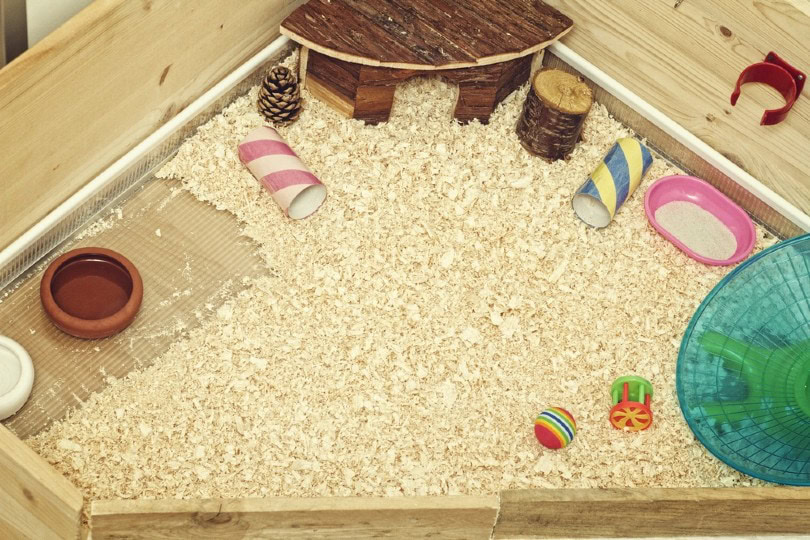
2. Cleaning Guinea Pig Cage Bedding
This part depends on how many guinea pigs you have. If you have more than one, the bedding will need to be replaced more frequently. On average, it should be cleaned or replaced every 2 to 3 days or if you start to smell it. Otherwise, you can simply do spot cleaning.
Clean the Cage
If the weather is nice and warm enough, you can do this outside; otherwise, use your biggest sink. Use warm soapy water, and scrub the bottom of the cage with a brush.
You should also use a scraper to remove any crusty, hard-to-remove bits. Rinse off the soap, and ensure that the cage is completely dry before placing everything back inside.
Put Everything Back
Put everything back into the clean cage, including your guinea pig!
Spot Clean
These steps should be done about every three times per week, or more often, especially if there’s a stinky issue with your piggy’s cage. Spot cleaning should be done every day. Guinea pigs poop frequently, so you’ll need to stay on top of cleaning it all up, along with any bedding that’s been urinated on and leftover food. Spot cleaning should help prevent bad odors from building up.
- ADVANCED ENZYMATIC CLEANER - Penetrates the most stubborn smells and stains at the deepest molecular...
- FOR ANY MESS, ON ANY SURFACE - This pet odor eliminator cleans your carpets, floors, furniture,...
- FRESH, NATURAL ODOR - Our unique formulation doesn't rely on dangerous or unpleasant chemical...
If you're over your house smelling like you've got a pet, it's time to check out the Hepper Advanced Bio-Enzyme Pet Stain & Odor Eliminator Spray! It removes even the most stubborn smells and stains and comes with a 100% satisfaction guarantee. Click here to find out more about this amazing product.
At PangoVet, we’ve admired Hepper for many years, and decided to take a controlling ownership interest so that we could benefit from the outstanding products of this cool cat company!
- See also: Best Beddings for Hedgehogs
3. Guinea Pig Diet
Sometimes, a guinea pig might not smell that nice because of their diet. These rodents are herbivores, which means their diet is based on plant matter and should simulate what they would eat in their natural habitats. It also needs to contain sufficient amounts of vitamin C, as guinea pigs can’t produce their own.
Grass and hay are staples for a guinea pig’s diet, and they should have unlimited and constant access to Timothy hay or other high-quality grasses and hay. This should make up 85-90% of their daily food intake.
Piggies should also be given specially-formulated pellets to provide them with the necessary vitamins and minerals (including the all-important vitamin C), but not much more than one tablespoon of pellets per day. A small amount of fresh green veg is recommended on a daily basis, but not more than a cup, while fruit should only be provided once a week, due to the high sugar content.
Foods to Avoid:
- Avocados
- Processed or cooked food
- Juice (guinea pigs should only drink water)
- Dairy products
- Garlic or onions
Some pigs might smell bad because they’ve been eating the wrong things, or more commonly, the wrong amounts, with too many pellets, veg and fruit, instead of hay and grass. All of this can lead to serious health issues that can also lead to an unpleasant smell surrounding your guinea pig, be it their urine or feces. Speak to your vet if you need more advice on your guinea pig’s diet.
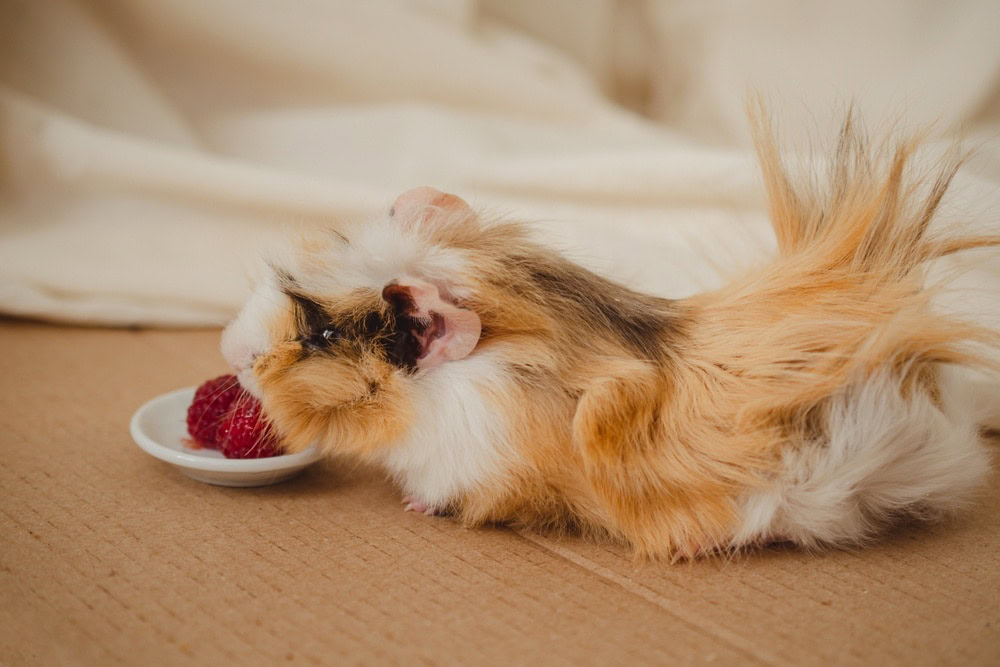
4. Grooming for Guinea Pigs
While your guinea pig should do a great job of taking care of their own grooming, there might be times when you’ll need to help, particularly if you have a longhaired piggy. Those with excess hair or that are old or sick should be given a hand with their grooming. You can also consider giving your guinea pig a gentle bath especially around the back end if the situation calls for it.
5. Guinea Pig Illness
Sometimes, an ill piggy can stink. Smelly health conditions can include:
- Abscesses
- Skin wounds
- Diarrhea
- Scurvy
- Flystrike
- Bumblefoot
- Tumors
- Urinary tract infections
- Respiratory infections
- Dental issues
If your pig seems to smell worse than usual and has any other signs, such as a lack of appetite, no interest in anything going on around them, diarrhea or reduced fecal output, weight loss, skin changes, painful urination and straining, breathing difficulties, lethargy, and more, you need to bring them to your vet as soon as possible. When small animals have a medical problem, their health can go downhill quite quickly.
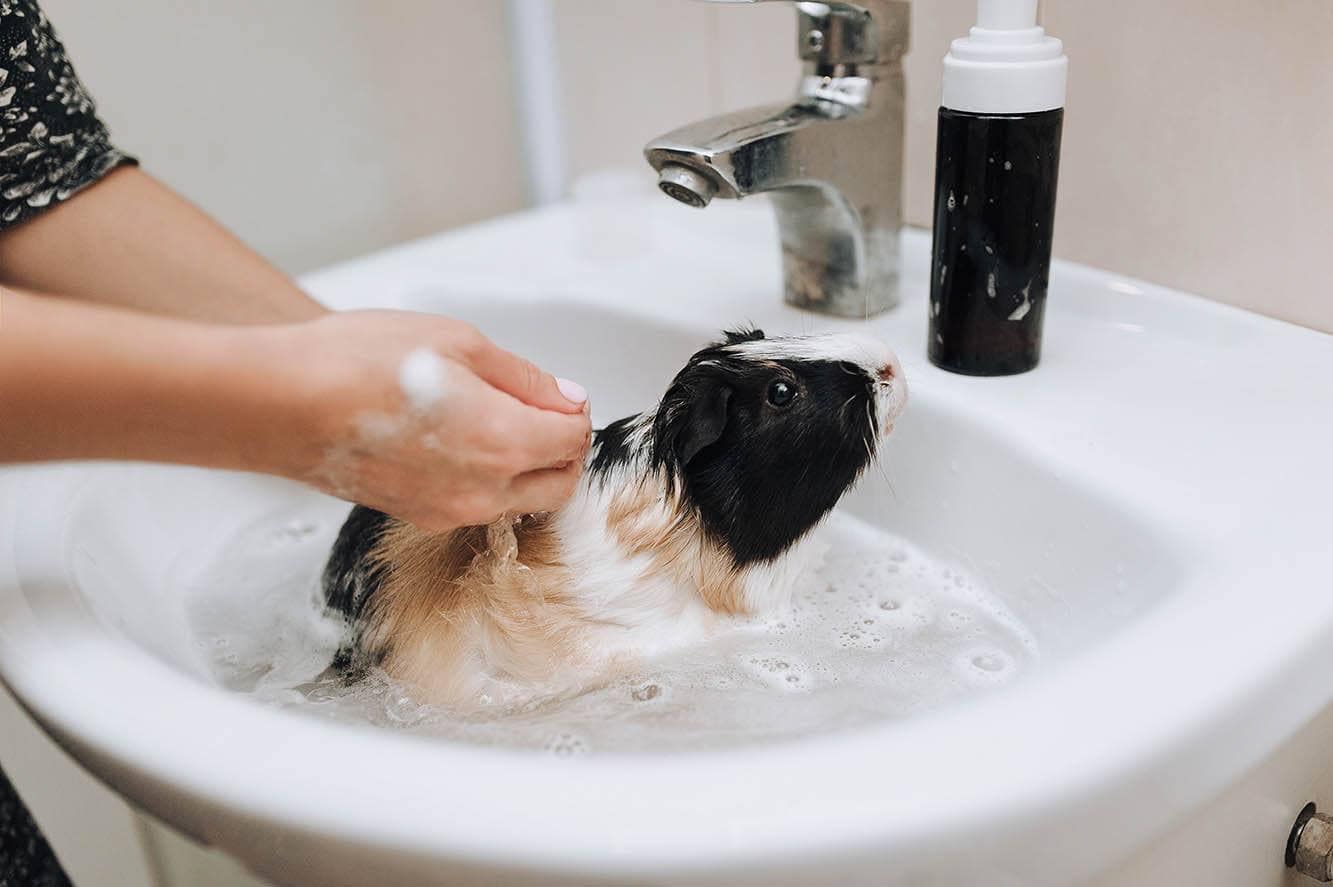
6. Grease Glands
Male guinea pigs can be a little smellier than females because they generally have more active grease glands at the ends of their spines, above the anus. They use the oily substance to scent mark their territory, and if it builds up, it can matt the fur on their behinds. This can be unhygienic and uncomfortable for your piggy! Grooming your pet should also include cleaning their bottom/grease glands.
7. Litter Box
This might surprise you, but you can litter box train your guinea pig. It isn’t guaranteed that your pet will take to it or use it all the time, but if it works, it will certainly make cleaning up after your guinea pig much easier.
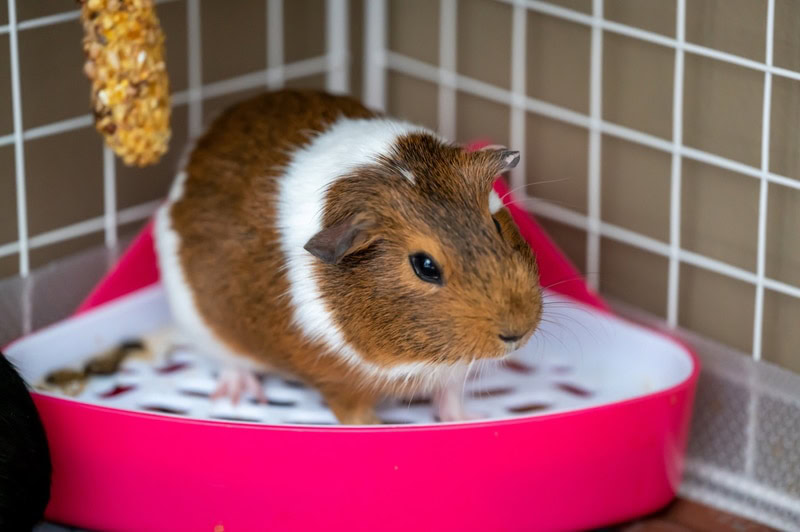
8. Activated Charcoal or Air Purifiers
Consider using a mild air purifier with activated charcoal in the room itself to help absorb and neutralize the guinea pig odor. This is a band-aid solution because you’ll want to ensure that your pig is in a clean cage and in good health, but it’s an ideal way to make the room smell a little fresher.
Keep in mind that you should never use any kind of essential oil diffusers, candles, or air fresheners (sprays or plug-ins) in the same room as your pet. The ingredients in these products can cause respiratory problems.
- See Also: How to Get Rid of Pet Odor in Your House

Conclusion
Typically, guinea pigs don’t stink. It’s usually their smelly cage that is causing the unpleasant odor. But if your pet is sick or struggling to groom themselves, that can definitely lead to an odorous guinea pig.
The most important thing is to figure out where the smell is coming from. So, whether it’s by cleaning the cage more frequently or visiting the vet, you’re taking good care of your pet and solving the problem.
- How to Keep Your Guinea Pig’s Cage from Smelling | Dogwood Animal Hospital
- What bedding is the best for guinea pigs
- https://www.nationalgeographic.org/encyclopedia/herbivore/
- Feeding Guinea Pigs VCA Canada
- Guinea Pig Grooming Guide
- Mammal, Rodent Behavior & Adaptations | Britannica
- What should I feed my guinea pigs? – RSPCA Knowledgebase
- Your guinea pig’s diet – PDSA
- How to Clean Your Guinea Pig’s Grease Gland
Featured Image Credit: Ase, Shutterstock
